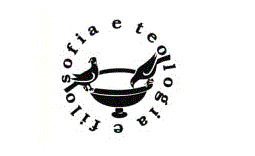


L'articolo si sofferma sulla categoria di "antiteismo", proposta e analizzata da P.J. Proudhon, considerato uno dei padri dell'anarchia ("ordine senza potere") ed esponente di un protosocialismo federalista. Secondo Proudhon, l'antiteismo non coinciderebbe con l'agnosticismo o con l'ateismo, alimentandosi invece del risentimento: "Dieu, c'est le mal", dichiara così vividamente l'antiteista che è davvero in guerra con Dio, non contento di negare l'esistenza del quest'ultima, ma rivelando, dietro il risentimento, la contestazione di ogni teodicea e quindi le ragioni etiche profonde dell'opzione atea. Questa scelta distingue nettamente i due socialismi di Proudhon e Marx, fin dal loro punto di partenza. Il pensiero di Proudhon, pur esposto a contraddizioni ed esagerazioni, presenta una concezione paradossale e drammatica dell'essere umano, utilizzando nozioni teologiche tradizionali, ma rivelandone le enigmatiche radici antropologiche e sociologiche.
Parole chiave: Proudhon, antiteismo, teodicea, socialismo
The article focuses on the category of "antitheism", proposed and analyzed by P.J. Proudhon, considered one of the fathers of anarchy ("order without power") and exponent of a federalist proto-socialism. According to Proudhon, antitheism would not coincide with agnosticism or atheism, feeding itself instead of resentment: "Dieu, c'est le mal", so vividly declares the antitheist who is indeed in war with God, not content with denying the existence of the latter, but revealing, behind the resentment, the contestation of every theodicy and therefore the profound ethical reasons for the atheistic option. This choice clearly distinguishes the two socialisms of Proudhon and Marx, right from their starting point. Proudhon's thought, though exposed to contradictions and exaggerations, presents a paradoxical and dramatic conception of human being, using traditional theological notions, but to reveal their enigmatic anthropological and sociological roots.
Keywords: Proudhon, Antitheism, Theodicy, Socialism